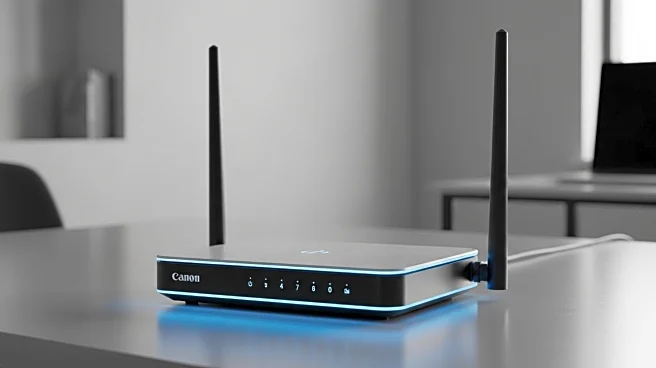What is the story about?
What's Happening?
Hewlett Packard Enterprise (HPE) has successfully secured a deal to provide Wi-Fi connectivity for the Ryder Cup, replacing Cisco, which previously held the contract. The decision follows HPE's impressive performance in Rome two years ago, where they overcame challenges such as archaeological relics and cable-gnawing rats. Michael Cole, the Chief Technology Officer of Ryder Cup Europe, praised HPE's capabilities in network infrastructure and hybrid cloud services. The partnership is expected to extend to multiple future Ryder Cups. HPE has installed a network of 650 Wi-Fi 6E access points and 170 CX switches across the 1,500-acre golf course, accommodating an estimated 250,000 attendees over three days. The setup includes AI technologies to optimize network performance and manage crowd dynamics, with plans for further automation in future events.
Why It's Important?
The shift from Cisco to HPE for the Ryder Cup's Wi-Fi services marks a significant development in the competitive landscape of enterprise connectivity providers. HPE's success in securing this high-profile event showcases its technological prowess and strategic positioning in the market, potentially influencing future contracts and partnerships. The use of AI and advanced network solutions at the Ryder Cup highlights the growing importance of technology in enhancing event management and fan engagement. This could lead to increased revenue and improved visitor experiences, setting a precedent for other sports events. The deal also underscores HPE's ambition to close the gap with Cisco, the current leader in enterprise Wi-Fi services in the U.S.
What's Next?
HPE plans to further integrate AI technologies into its network solutions for future Ryder Cups, aiming for a more automated and self-driving network. This includes the use of agentic AI to dynamically respond to bandwidth demands without human intervention. The data collected from the current event will be used to refine HPE's technology for the next Ryder Cup in Ireland in 2027. Additionally, HPE's reliance on Nvidia's GPUs for AI processing may evolve, with potential shifts to AMD or Intel hardware as the company seeks to remain hardware-agnostic. The success of this event could lead to more opportunities for HPE in the sports industry and beyond.
Beyond the Headlines
The integration of AI and connectivity solutions at the Ryder Cup reflects broader trends in the sports industry, where technology is increasingly used to enhance operational efficiency and fan engagement. The use of AI for crowd management and event planning could lead to more personalized and immersive experiences for attendees, potentially transforming how sports events are organized and monetized. HPE's focus on data sovereignty and latency management also highlights the importance of secure and efficient data handling in large-scale events, which could influence future technological developments and partnerships.
















